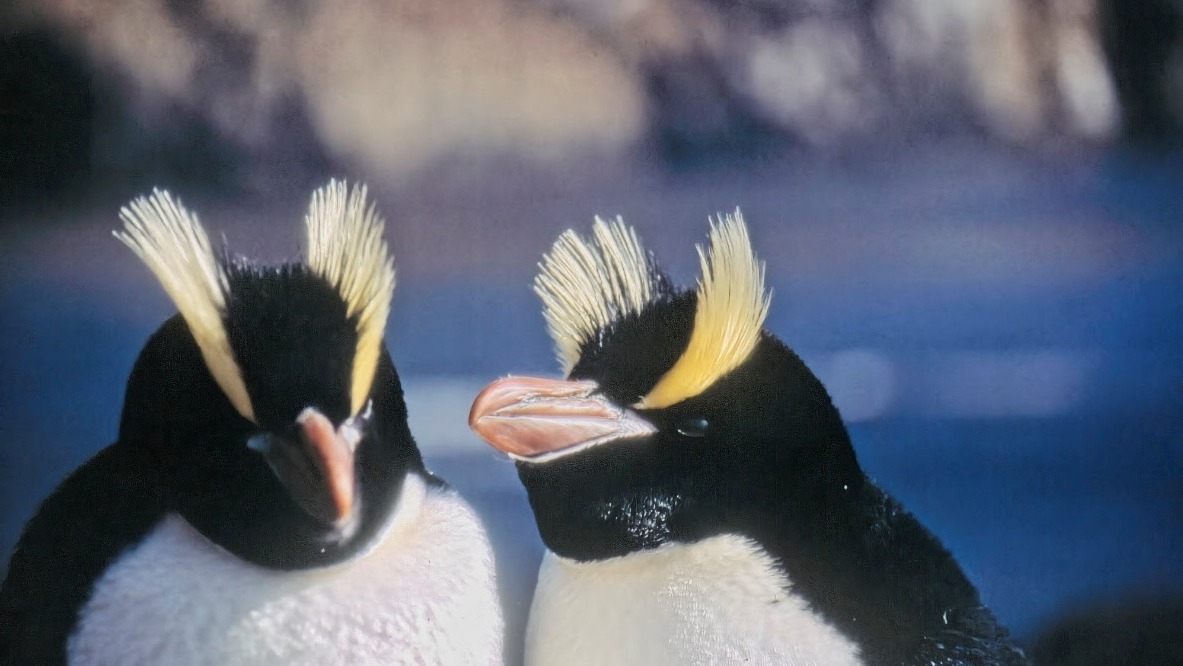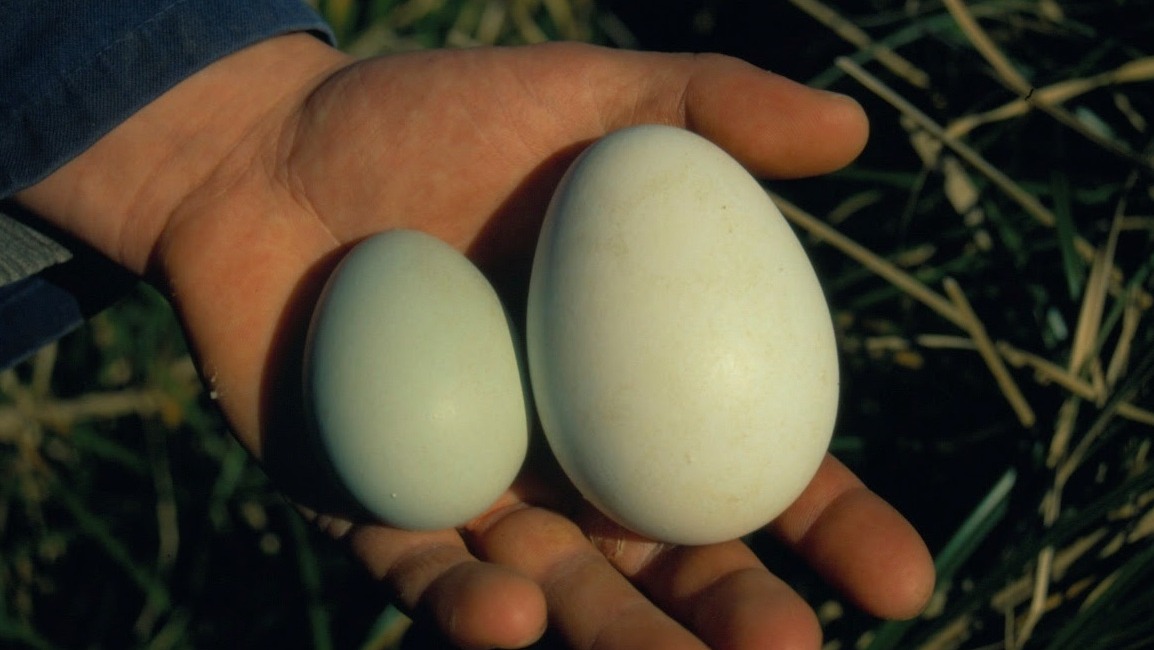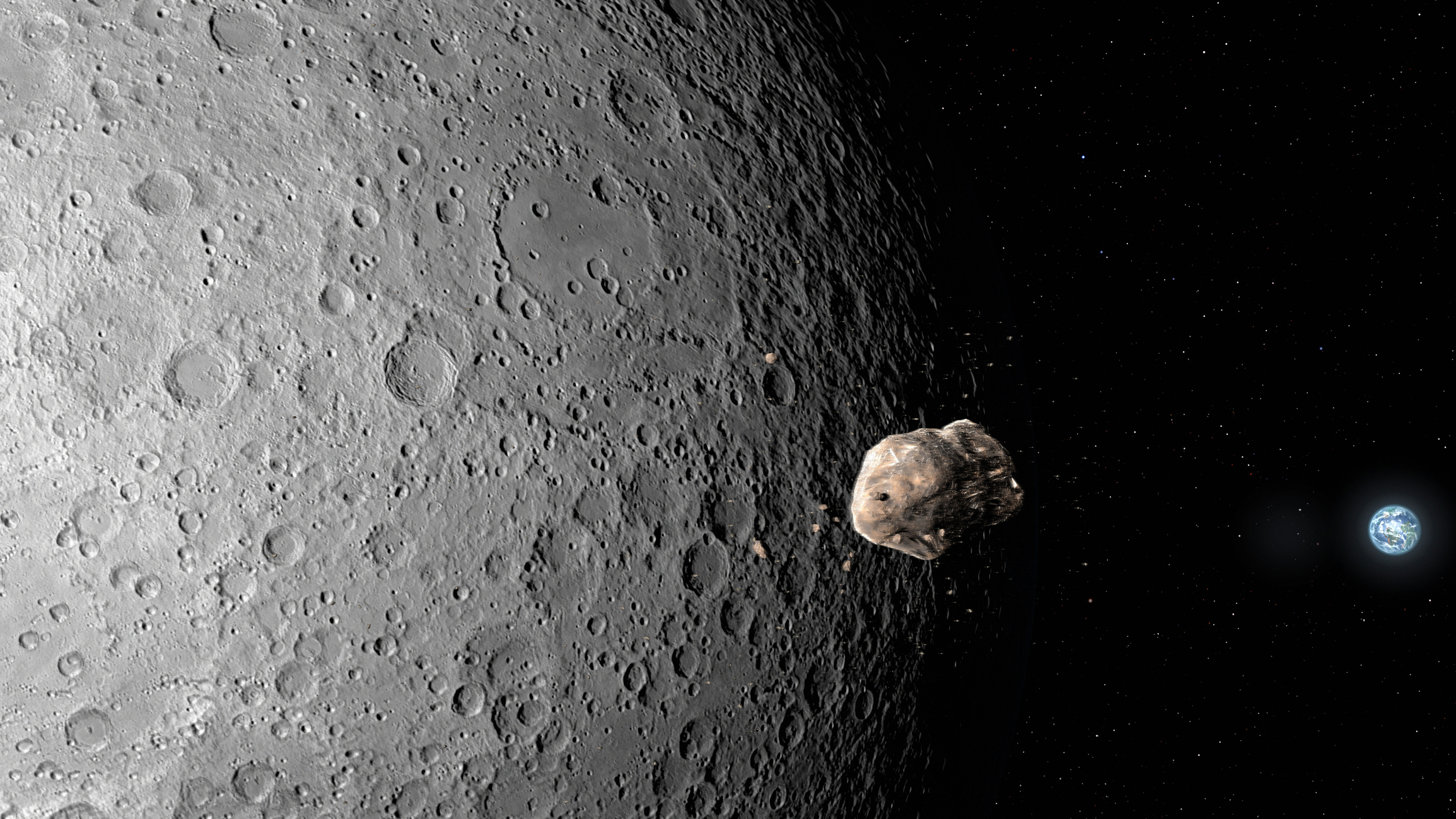In 'bizarre behavior,' New Zealand penguins lay one egg, reject it, and then lay another. Now, scientists know why.
They're one of the only bird species to do this.

Get the world’s most fascinating discoveries delivered straight to your inbox.
You are now subscribed
Your newsletter sign-up was successful
Want to add more newsletters?

Delivered Daily
Daily Newsletter
Sign up for the latest discoveries, groundbreaking research and fascinating breakthroughs that impact you and the wider world direct to your inbox.

Once a week
Life's Little Mysteries
Feed your curiosity with an exclusive mystery every week, solved with science and delivered direct to your inbox before it's seen anywhere else.

Once a week
How It Works
Sign up to our free science & technology newsletter for your weekly fix of fascinating articles, quick quizzes, amazing images, and more

Delivered daily
Space.com Newsletter
Breaking space news, the latest updates on rocket launches, skywatching events and more!

Once a month
Watch This Space
Sign up to our monthly entertainment newsletter to keep up with all our coverage of the latest sci-fi and space movies, tv shows, games and books.

Once a week
Night Sky This Week
Discover this week's must-see night sky events, moon phases, and stunning astrophotos. Sign up for our skywatching newsletter and explore the universe with us!
Join the club
Get full access to premium articles, exclusive features and a growing list of member rewards.
Researchers have cracked the case of why erect-crested penguins in New Zealand reject their first-laid eggs.
These penguins, which mate in monogamous pairs, lay an egg only to abandon it in favor of a second egg, which they then incubate until it hatches. Laying eggs is energy intensive, and so this behavior is highly unusual in birds, but a study published Oct. 12 in the journal PLOS One offers new insight into the odd practice.
After studying the breeding biology of erect-crested penguins (Eudyptes sclateri), an endangered species known for its spiky crown of feathers, researchers from the University of Otago in New Zealand determined that the penguin parents condemn one egg to oblivion to ensure that the second egg successfully hatches, as the birds know that they can't feed two chicks. (One of the only other known species that performs a similar behavior is the closely related macaroni penguins — Eudyptes chrysolophus — of Antarctica.)
When the study authors compared the eggs from a colony of 158 penguins, the scientists discovered that the first and second eggs, which are typically laid five days apart, differed dramatically in size.
"The second eggs were much larger than the first eggs, and the difference [in size] between the two is the largest of any bird species," Lloyd Davis, the study's lead author and a professor in the department of science communication at the University of Otago, told Live Science. "In most birds, the clutch [of eggs] gets smaller as they're laid, but in this case, the second egg is on average 85% larger than the first one."
Since 1998, Davis and his team have been studying this elusive species and its "bizarre behavior" around egg-laying. The researchers recently spent 250 hours observing the penguins and their eggs "in the drizzle" of the birds' breeding grounds on the Bounty and Antipodes islands — specks of rocky land in the South Pacific Ocean off the southeastern coast of mainland New Zealand.
Related: Are penguins really monogamous?
Get the world’s most fascinating discoveries delivered straight to your inbox.
"We noticed that about 45% of the penguins don't even bother incubating their first egg — they just look at it after it's laid," Davis said. "Most penguin species will make nests with stones, sticks and grasses, but over 90% of erect-crested penguins lay their eggs on a rocky platform, which is not exactly level, and the eggs tend to roll off it."
To mitigate this, scientists set up a "ring of stones" around 14 nests to prevent the eggs from rolling off the outcroppings. But even that didn't encourage the penguins to nurture the first eggs they laid.
"They still rejected the first egg," Davis said.
In addition to monitoring the birds, the scientists also collected blood samples, which revealed another piece of the puzzle when they were analyzed in the laboratory.

"Normally, you would expect the males to have higher testosterone levels at the start of the breeding period, while the females' levels would be lower, but we found something different," David said. "The males had low testosterone, while the females' levels were at least as high, or probably higher than the males, especially during the laying of their eggs."
This shift in testosterone could explain another unusual behavior in the penguin males. Unlike other species in the animal kingdom in which males become more aggressive toward one another during the breeding period, erect-crested penguin males remain docile.
"The males just weren't interested," he said. "In other species, there's a lot of fighting amongst the males within a colony. But with the erect-crested penguins, there's a lot of standing around and not engaging in many fights."
Of all the penguin species on the planet, erect-crested penguins are the least-studied due to their isolation. But while their remote habitat may shield these birds from human activity to an extent, their future is still threatened by climate change, adding to the urgency of learning more about these "forgotten penguins" before it's too late, Davis said.
"Little is known about them," he said. "They're an enigma."
Jennifer Nalewicki is former Live Science staff writer and Salt Lake City-based journalist whose work has been featured in The New York Times, Smithsonian Magazine, Scientific American, Popular Mechanics and more. She covers several science topics from planet Earth to paleontology and archaeology to health and culture. Prior to freelancing, Jennifer held an Editor role at Time Inc. Jennifer has a bachelor's degree in Journalism from The University of Texas at Austin.
 Live Science Plus
Live Science Plus





